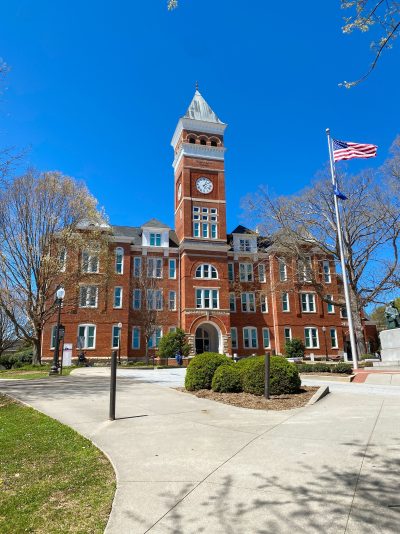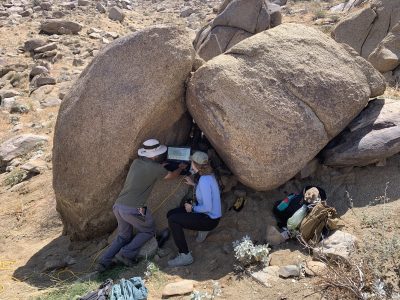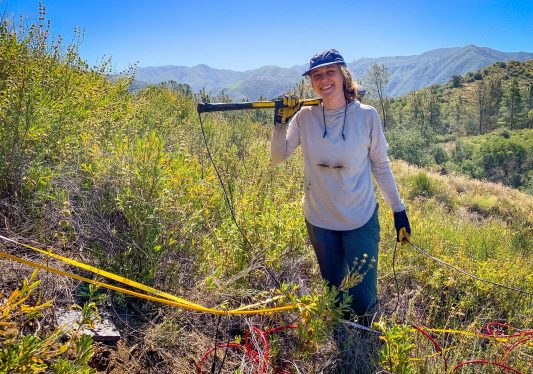Deciding what to study in graduate school is a monumental decision that sometimes can feel overwhelming. It's a choice that can have long-lasting consequences for your career, and it's essential to consider many factors before making a final decision. For me, the path to graduate school started with an interest in surface and groundwater processes, which eventually led me to Clemson University's Hydrogeology M.S. program.

The admissions process for Clemson's program was different from others I had applied to. I was accepted in the spring but did not have to choose a research adviser until my coursework began in the Fall semester. This unique approach allowed me to explore the different research groups and areas of study available within the program. During this time, I met my eventual adviser, Dr. Brady Flinchum. Brady's enthusiasm and unwavering support made it easy and exciting for me to pursue research in a field that was initially unfamiliar to me. The decision to work with him was and continues to be an immensely positive experience and has made my time as a graduate student great.
When I began working with Clemson's Critical Zone Group (CCZG), I learned for the first time about critical zone science, which studies the layer of Earth that extends from the tops of trees to the top of fresh bedrock. What I found most appealing about critical zone science was its interdisciplinary nature. The field brings together experts from many different areas, including geology, hydrology, and ecology, to help tease apart the complex processes occurring in this zone and to develop strategies for protecting and managing Earth's natural resources. The ability to work with such a diverse group of professionals was truly a unique and exciting experience that I had never anticipated.

As I continued my studies, I realized I wanted to pursue a Ph.D. Although I had not originally planned to spend additional years in school, the opportunity to continue working with Brady, my fellow researchers and friends in the CCZG, and the Bedrock Critical Zone Network (BCZN) was too good to pass up. The supportive community and mentorship I had found at Clemson, and the opportunities for growth in my research made the decision to pursue a Ph.D. easy.
Looking back, I feel incredibly fortunate for the circumstances that led me to the position I am in today. My time at Clemson has been a period of immense personal and academic growth, and I am well-prepared to take on the next stage of my career. I have found that the support and guidance of an enthusiastic and supportive mentor like Brady can make all the difference in graduate school. Additionally, being part of a supportive research community, like the CCZG and BCZN, can provide invaluable collaboration and personal growth opportunities.
For anyone considering graduate school, I encourage you to explore different programs and research areas to find what truly interests you. Don't be afraid to take risks and try something new. And most importantly, find a supportive community that will help you navigate the ups and downs of graduate school. The journey may be challenging, but it is also a period of tremendous personal and professional growth.

